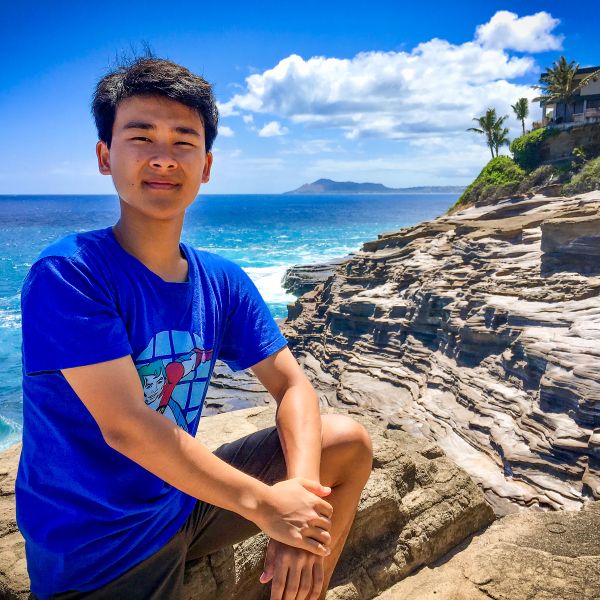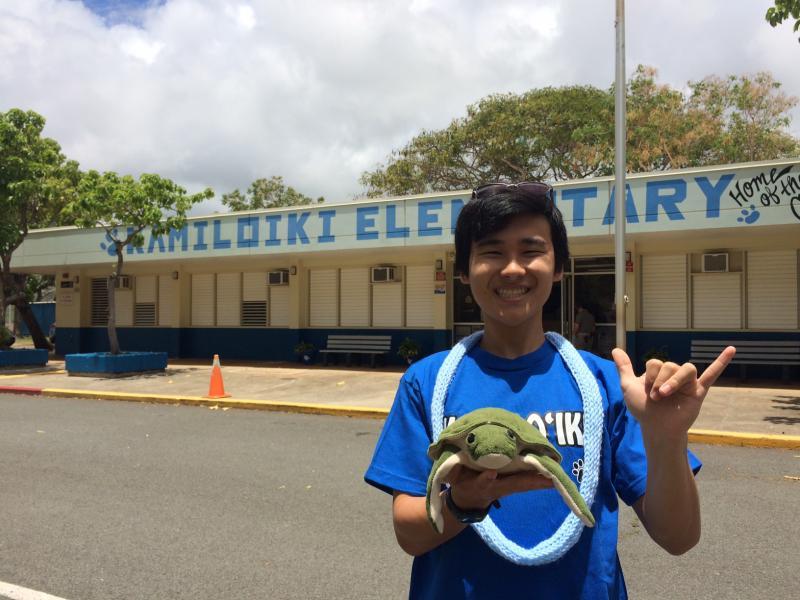Image

Honolulu, HI, United States SEE OTHER BIOS HERE
Age: 17
Dyson is working to #beatplasticpollution, one straw, one school at a time.
Tell us about yourself!
I am the founder of Project O.C.E.A.N. Hawaiʻi, which is my personal initiative to tackle the issue of plastic pollution here in Hawaiʻi. Through this project, I regularly visit classrooms and community events to do presentations on why plastic pollution is a problem as well as some of the solutions around it. The presentations involve a lot of interactive activities to get the audience engaged. For example, with one activity I give each audience member a rubber band. They hook the rubber band on their thumb and cross it over to their pinky, and then have to get it off without using their free hand. This is supposed to resemble a turtle trying to get unentangled from, say, a fishing net.

Living in Hawaiʻi, I grew up completely surrounded by the ocean, and I came to love it as my second home. The ocean was a place where I could snorkel, spearfish, and bodyboard, and it provided all the adventure, relaxation, and excitement I could have asked for. Eventually, I started to notice that there was something else mixed in with the schools of fish and mounds of coral – it was plastics. But every time I saw a piece of plastic in the water, I ignored it, thinking to myself, “it’s only a chip wrapper, nothing important.”
This went on for a while. Then, when I was 16, I attended the Ocean Heroes Bootcamp (OHBC). At this event, I got to learn about why plastic pollution is a problem and meet youth who were actively tackling this issue. I was inspired, to say the least. I had no idea that, as a kid, I could make a difference, and the youth at OHBC showed me that I can make a positive difference to #beatplasticpollution. That was the spark that inspired me to start my own project to save the ocean that I grew up in. But while OHBC sparked my interest, my love of the ocean was the kindling that allowed those sparks to become something greater.
What advice would you give to the next generation of leaders that are looking to bring about positive change in their communities through EE?
One of the earliest things I learned when I got involved with environmental education is to go for every opportunity that you can, even if you think it out of your reach. Nobody will get everything they want (I definitely have not), but if you are dedicated and do your best, you will get the opportunities that fit you best. Securing a $860 grant, mentoring youth who are passionate about beating plastic pollution, and presenting five times in one day on a neighboring Hawaiian island were all opportunities I doubted I could reach. However, in the end, with dedication and perseverance, I managed it. If you have a plan to bring about positive change in your community, go for it! The sky isn't the limit; shoot for the stars!

There are two things that keep me hopeful for the future.
First of all, there is hope. I have hope that we will come together and solve our environmental issues effectively. Maybe it will not all happen in one day, but it will happen. This hope is what allows us to take action, and action to protect our Earth is what we need.
Second, the movement is growing. Fueled by hope and action, the movement to change the way we treat our environment is happening. As the saying goes, “many hands make light work.”
What pro-environmental behavior do you think would make a big impact if everyone in the world started doing it?
Get involved in your government. Seriously. Civic engagement is a huge part of getting your community’s voice heard and making change happen. Civic engagement includes not just voting. Call your senator to tell them about an issue you care about, turn up to a hearing to give your thoughts on a bill, and follow through to make sure the people in office who represent you are doing their job. If everyone in this world got civically involved, the results would literally impact everything, not just the environment, by allowing everyone’s voice to be heard. This is how democracies work!
SIGN UP FOR 30 UNDER 30 UPDATES